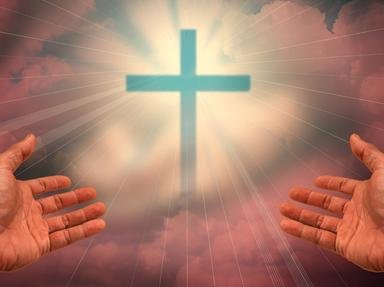Quiz Answer Key and Fun Facts
1. I once had a queen tossed to her death after her husband, who was the king of Israel, had a man and his sons put to death. The king was merely following his wife's advice, though. After I became the king, I put a stop to her evil ways once and for all.
Claudia, "Clav411", has asked if you can remember my name. What is it?
2. Stuart's ("Watchkeeper's") name has an interesting background. Not only is a watchkeeper a maritime-based term meaning one who keeps a vigilant eye on circumstances at sea, it also has a Biblical basis. Can you help me find out why he chose the name "Watchkeeper", in part based on the scripture found in Habakkuk, chapter 2?
3. What do the prophet Elisha and our teammate David, "Cowrofl", have in common, you ask?
Well, it seems that Cowrofl just LOVES the story about the floating axe-head found in 2 Kings 6. What is the significant statement that one of the younger prophets made to Elisha about this piece of iron?
4. C.J., aka "HappyCamper48", wants to know a little bit more about Noah's ark, in order to help with a children's Sunday School lesson. Maybe you can help the class out with your answer to this question.
There were two types of birds released from the ark, after the abatement of the flood waters. WHAT were these two types of birds, and WHY was this significant in regards to their behavior?
5. What's this? A study about... flesh? If flesh and blood cannot inherit the kingdom of God, then how can anyone ever hope to enter in?
Marten, "birdman585", posed a toughie with this one. According to 1 Corinthians 15:39, how many kinds of flesh are there?
6. Heather, "PeggyLouisa", likes to study this Old Testament prophet in particular. Which prophet did a mother once ask the following question of?
"What have I to do with thee, O thou man of God? art thou come unto me to call my sin to remembrance, and to slay my son?" - 1 Kings 17:18 (KJV).
(Clue: The woman and her son lived in Zar'-e-fath (Tsarephath or Sarepta), which lay in what is modern-day Lebanon, just to the north of Israel on the Mediterranean coast.)
7. Now, here's a surprise for you! The author of this quiz just couldn't resist adding a question of his own. (Imagine that...)
Prior to the children of Jacob being assigned certain stones that the high priest Aaron wore on his breastplate (in Exodus 28), WHO was in possession of those stones, according to Ezekiel 28:14?
8. Dean, "dean521", our team leader, asked me,
"At what point in scripture did Jesus change from His teaching ministry to focusing on His sacrifice, as well as changing the relationship with His disciples by referring to them as His friends?"
I had to confess that I didn't know the answer. Can you help us out?
9. Jimmy (j-zilch) wants to know how much you know about the 19th and final king of Israel. First of all, what was this king's name, and secondly, why was he the last king of the nation?
10. Oh, wait. Dean (dean521) wasn't through yet. He asked another question, and again, I didn't know the answer. (I've GOT to study more!) Can you help me find the answer, so I can let him know?
"What is a 'talent', as found in Jesus' parable in Matthew 25 of the talents given to three different men?"
Source: Author
logcrawler
This quiz was reviewed by FunTrivia editor
CellarDoor before going online.
Any errors found in FunTrivia content are routinely corrected through our feedback system.


